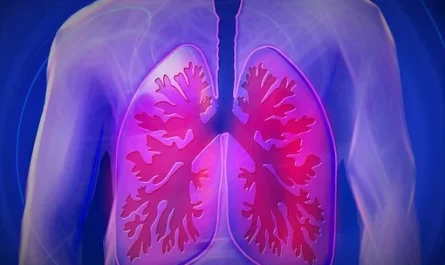Learn About Men’s Health
There are many aspects of men’s health that are unique to men, as well as some health issues that are more common in men. Some important areas of men’s health include:
- Prostate health: This includes understanding the risks and potential symptoms of prostate cancer, and seeking regular screenings and check-ups to detect any potential issues early on.
- Sexual health: This includes understanding and prioritizing consent in all sexual encounters, practicing safe sex to reduce the risk of STIs, and taking care of overall sexual health and well-being.
- Mental health: It is important for men to prioritize their mental health, including managing stress, seeking help if necessary, and taking care of overall emotional well-being.
- Heart health: Heart disease is a leading cause of death for men, so it is important for men to prioritize their heart health by maintaining a healthy diet and lifestyle, getting regular check-ups, and seeking medical attention if necessary.
Cancer prevention and screening: It is important for men to be aware of the potential signs and symptoms of common types of cancer, such as prostate, testicular, and colorectal cancer, and to seek regular screenings and check-ups to detect any potential issues early on. Sexual and reproductive health: This includes understanding and addressing any potential issues related to fertility, sexual function, and overall reproductive health.
Alcohol and substance abuse: It is important for men to be aware of the risks and potential consequences of alcohol and substance abuse, and to seek help if necessary. Exercise and physical activity: Regular physical activity can help men maintain good physical and mental health, and reduce the risk of chronic conditions such as heart disease and diabetes.
1: Prostate health is an important aspect of men’s health.
The prostate is a small gland in the male reproductive system that produces fluid for semen. As men age, the prostate can become enlarged, which can cause urinary symptoms and increase the risk of prostate cancer.
Some strategies for maintaining good prostate health include:
- Get regular screenings: It is recommended that men over the age of 50 get a prostate-specific antigen (PSA) test and a digital rectal exam (DRE) every year to check for signs of prostate cancer. Men with a family history of prostate cancer or other risk factors may need to start screenings at an earlier age or have them more frequently.
- Maintain a healthy diet: A diet rich in fruits, vegetables, and whole grains and low in saturated fat and red meat may help reduce the risk of prostate cancer.
- Exercise regularly: Regular physical activity can help reduce the risk of prostate cancer and other chronic conditions.
- Limit alcohol consumption: Excessive alcohol consumption has been linked to an increased risk of prostate cancer. Don’t smoke: Smoking increases the risk of prostate cancer and other serious health problems. If you smoke, consider quitting and seeking out resources and support to help you quit.
2: Maintaining good sexual health is important for men’s overall physical and emotional well-being. There are some ways of maintaining Sexual Health.
- Practice safe sex: Using condoms and other barriers can help reduce the risk of sexually transmitted infections (STIs) and unintended pregnancy. It is important to use condoms every time you have sex and to get tested regularly for STIs.
- Maintain a healthy lifestyle: A healthy diet, regular exercise, and avoiding tobacco and excessive alcohol consumption can help improve sexual function and overall health.
- Manage stress and other mental health issues: Stress and mental health issues can affect sexual desire and performance. Seeking treatment for these issues can improve sexual health.
- Get regular check-ups: Seeing a healthcare provider for regular check-ups can help identify and address any potential sexual health problems. Communicate with your partner: Good communication with your partner can help you both feel more connected and satisfied in your relationship. Talk openly with your partner about your desires and boundaries, and be respectful of your partner’s needs and boundaries as well.
3: Heart health is an important aspect of men’s overall health. Here are some strategies for maintaining good heart health:
- Maintain a healthy diet: A diet rich in fruits, vegetables, whole grains, and lean proteins and low in saturated fat, trans fat, and sodium can help reduce the risk of heart disease.
- Exercise regularly: Regular physical activity can help lower blood pressure, improve cholesterol levels, and reduce the risk of heart disease. Don’t smoke: Smoking increases the risk of heart disease and other serious health problems. If you smoke, consider quitting and seeking out resources and support to help you quit.
- Limit alcohol consumption: Excessive alcohol consumption can increase the risk of heart disease.
- Manage stress: Chronic stress can contribute to heart disease and other health problems. Consider finding healthy ways to manage stress, such as through exercise, relaxation techniques, or talking to a therapist.
- Get regular check-ups: Seeing a healthcare provider for regular check-ups can help identify and address any potential heart health issues.
4: Exercise and physical activity are important for men’s overall health and well-being. Some benefits of regular exercise include:
- Improved cardiovascular health: Exercise can help lower blood pressure, improve cholesterol levels, and reduce the risk of heart disease. Worked on psychological health: Exercise can assist with lessening pressure, further develop state of mind, and lift confidence. Stronger muscles and bones: Exercise can help build and maintain strong muscles and bones, which can help reduce the risk of osteoporosis and other bone-related conditions.
- Weight management: Exercise can help maintain a healthy weight and prevent obesity. Improved sexual health: Exercise can improve circulation and increase testosterone levels, which can enhance sexual function and desire.
It is recommended that men aim for at least 150 minutes of moderate-intensity or 75 minutes of vigorous-intensity activity each week. Examples of moderate-intensity activities include brisk walking, cycling, and dancing. Examples of vigorous-intensity activities include running, jumping rope, and high-intensity interval training. It is also important to incorporate strength training exercises, such as lifting weights or doing push-ups, into your routine at least two days per week.





